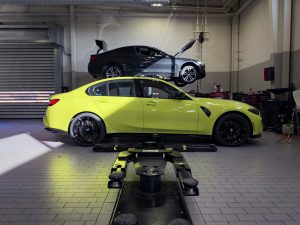Decoding the Advanced Technologies Transforming Transportation
The transportation industry has undergone significant changes in the past decade, with advancements in technology shaping the way we move, commute and transport goods. From self-driving cars to electric planes, the future of transportation has never been more exciting. As we continue to see the rapid development of advanced technologies, it is crucial to understand how these innovations are transforming transportation and what impact they will have on our daily lives.
Revolutionizing Public Transportation with Connected Systems
Public transportation systems have always played a vital role in cities worldwide, providing a cost-effective and efficient mode of transportation for commuters. However, with the constant growth in urban populations, public transportation has been facing challenges in terms of sustainability and reliability.
This is where connected systems come into play, transforming the way we use public transportation. By integrating advanced technologies such as Internet of Things (IoT) and Artificial Intelligence (AI), public transportation systems can become more connected and efficient than ever before.
Smart Buses and Trains
Smart buses and trains equipped with sensors, cameras, and GPS technology can provide real-time data and insights to improve the overall operation of public transportation. This includes optimizing routes, predicting and reducing delays, and improving passenger experience by providing accurate arrival and departure times.
Furthermore, these connected systems can assist in reducing carbon emissions by optimizing routes and reducing congestion on the roads. This not only contributes to a greener environment but also makes public transportation a more attractive option for commuters.
The Rise of Electric and Autonomous Vehicles
One of the most significant advancements in transportation in recent years is the development of electric and autonomous vehicles. These vehicles are powered by clean energy sources, making them more sustainable and environmentally friendly than traditional gasoline vehicles.
Electric Cars and Buses
The increasing popularity of electric cars and buses has contributed to reducing carbon emissions and improving air quality in cities. With technological advancements, electric vehicles are now more affordable and have longer battery life, making them a viable option for everyday use.
Self-Driving Cars and Public Transportation
The concept of self-driving cars has been around for a while, and with the continuous development and testing, it is becoming a reality. These autonomous vehicles use AI and sensors to navigate roads, making transportation safer and more efficient. In the future, self-driving cars could also be used in public transportation, providing a more convenient and reliable mode of transportation.
The Impact of Advanced Technologies on Logistics and Freight Transportation
The logistics and freight transportation industry has also been profoundly affected by advanced technologies. With the rise of e-commerce, the demand for fast and efficient delivery of goods has increased, making logistics a critical aspect of transportation.
Drone Delivery
One of the most talked-about advancements in logistics is the use of drones for delivery. These unmanned aerial vehicles (UAVs) can deliver packages and goods to remote and hard-to-reach locations, making the delivery process faster and more efficient.
Smart Warehouses
The use of technology in logistics and freight transportation also includes the development of smart warehouses. These warehouses use AI and IoT to automate processes such as inventory management, picking and packing, and tracking shipments. This not only improves efficiency but also reduces human errors and saves costs.
Challenges and Future Directions
While advanced technologies are revolutionizing transportation, there are still challenges that need to be addressed. This includes privacy concerns in connected systems, safety concerns with autonomous vehicles, and the need for improved infrastructure to support these technologies.
However, with continuous research and development, the future of transportation looks promising. We can expect to see more advancements in electric and autonomous vehicles, connected public transportation systems, and efficient logistics and freight transportation. The incorporation of advanced technologies will undoubtedly transform transportation into a safer, greener, and more convenient experience for everyone.
In conclusion, advanced technologies are transforming the transportation industry in unparalleled ways. From public transportation to logistics and freight transportation, these innovations are making transportation more sustainable, efficient, and connected. As we continue to evolve, there is no doubt that the future of transportation will be shaped by technology, making our daily commutes and transportation of goods faster, greener, and more convenient.











